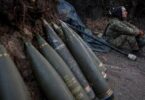PESHAWAR (APP): Like other parts of Pakistan, hundreds of thousands of Muslims sit in Itikaf in mosques and women at homes before Magrib prayer in Khyber Pakthunkhwa on Tuesday evening to seek forgiveness, mercy and Allah’s unlimited blessings in the last Ashra of Ramazanul Mubarak.
The worshipers gather for Itikaf in all small and large mosques in all districts of Khyber Pakthunkhwa including merged areas (ex-Fata) and confined themselves at small places at mosques and women at homes seeking Allah’s blessings and forgiveness of their sins. In Peshawar, all the small and large mosques including the historic Mohabat Khan mosque, Zarghoni Hayatabad mosque, Spine Jumat, Gunj mosque and Sunheri mosque etc were flooded with Mutakifs (a person sitting in Itikaf).
The worshipers also gathered in large numbers at mosques at adjoining districts of Peshawar including Khyber, Charsadda, Nowshera, Kohat and Swabi. The worshippers observing Itikaf would spend their time in reading the Holy Quran, Nawafil and praying to Allah Almighty for showering His countless blessings on human beings especially of the fasting Muslims.
“Itikaf is an intensive worship observed during the last 10 days of Ramazanul Mubarak by remaining confined to a small place in a mosque or in a house (for women). It has been a regular Sunnah (practice of Holy Prophet PBUH), which carried great blessings of the Allah Almighty for His believers during Ramazan,” said Qibla Ayaz, Chairman, Pakistan Ideological Council (PIC) while talking to APP.
“Itikaf means to ‘isolate or devote oneself for worship of the Allah in the last Ashra (10-day) of Ramazan and Allah would grant reward to Mutakifs in this world and hereafter,” he said, adding there was also a blessed night of ‘Layatul Qadar’ (the Night of Power) most probably in the last Ashra of Ramazan and who prays in this holy night with faith and sincerity, all his/her past sins would be pardon. He said the Holy Prophet Muhammad (PBUH) had also laid great stress on ‘Itikaf’ and declared that “whosoever for Allah’s sake did even one day’s Itikhaf, Allah Almighty would keep him/her away from the hellfire (Jahnnam).
Professor Dr Abdul Ghafor, former Director Sheikh Zaid Islamic Centre and member of Central Roet Hilal Committee said that Ramazan’s last Ashura Itikaf was very significant for fasting people as evidenced by its performance by the Holy Prophet Muhammad (PBUH).
“As devoted servants of Allah Almighty, we have an obligation to be grateful when we earn Allah’s help and bounties,” he said, adding Mutakif passes through patience and abstain himself/herself from all kinds of sinful actions, behaviors, smoking and worshiped day and night for happiness of Allah. “Ramazan teaches us compassion and tolerance besides helping the needy, orphans and the oppressed segment of the society. Ramazan trains people to tolerate any trial, realizing that whatever we are going through is according to Allah’s divine well and He is the one to take us out of all difficult situations,” he said.
He said there are three types of Itikhaf including sunnah itikaf, which is only performed in the last ten-days of Ramazan. The other type is Nafal itikaf that could be performed for any number of days—even one day itikaf while wajib itikaf is done when someone promises to do it after his intention, wish or condition is fulfilled. “Itikaf strengthens believers’ faith in Allah and brings him/her closer to Him and takes him/her out of the worldly desires,” he said. He said if Mustakif has no one in the family to get them food or water in the mosque, he is permitted to go out and buy food but return as soon as possible to his/her worship place in the mosque and home.
“If itikaf of a person was broken on purpose such as leaving the place of itikaf without any pressing need, he would give kafara (penalty). “The penalty for breaking an itkaf is to either free a slave or fast for 60 consecutive days and if not possible then fee sixty poor persons.” He urged people to concentrate on worship during the last Ashra of Ramazan and give maximum charity to orphans, widows and people with disabilities and the poor. Preference should be given in charity to those organizations with clean service records so that their money could be used for people welfare. The people have been further requested to give Rs300 per head fitra before Eid to the poor so that they could be included in the joyous occasion.







